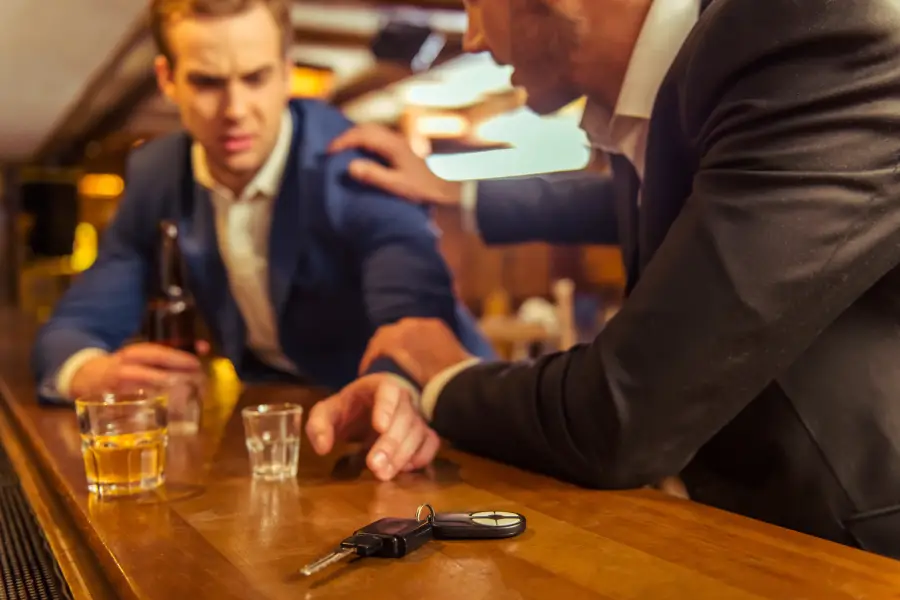In Colorado, a DUI is typically charged as a misdemeanor for a first or second offense. However, it becomes a felony if the driver has three or more prior DUI convictions, causes serious injury or death, or in certain cases involving extreme BAC levels. Felony DUI convictions carry harsher penalties, including longer prison sentences and permanent criminal records. If you are uncertain about your DUI charges, you can reach out to our Denver DUI lawyer. We can help you understand your charge and talk about potential defenses.
Our content is written legal experts and reviewed by experienced criminal defense attorneys with deep trial experience. We follow strict internal standards so that everything we share is reliable, transparent, and up to date.
- Expert: Steve Prager — Criminal defense attorney and former prosecutor; supervised the domestic violence prosecution unit in El Paso County before founding Prager Law
- Experience: Licensed in Colorado for 8 years; handled 40+ jury trials across the state; extensive background in criminal charges, DUI charges, domestic violence and serious criminal cases
- Last updated: September 2025
When is a DUI a Felony in Colorado?
A DUI becomes a felony in Colorado if it’s your fourth offense, if it causes serious injury or death, or if a child is endangered during the incident. These circumstances elevate the charge beyond a misdemeanor and can lead to severe legal consequences.
What Makes a DUI a Felony in Colorado?
In Colorado, most first, second, and third DUI offenses are classified as misdemeanors. However, a DUI becomes a felony under the following circumstances:
- Fourth or Subsequent DUI Offense:
- Colorado law mandates that a fourth DUI conviction, regardless of when previous offenses occurred, is classified as a Class 4 felony.
- DUI Involving Serious Injury:
- If a DUI results in serious bodily injury to another person, the charge may escalate to a felony, specifically vehicular assault.
- DUI Involving Death:
- A DUI that causes the death of another individual is charged as vehicular homicide, a severe felony with life-altering consequences.
- Child Endangerment:
- Driving under the influence with a minor in the vehicle can also lead to enhanced charges, potentially elevating the offense to a felony.
Understanding the specific circumstances of your case is critical, and consulting with a Denver DUI lawyer can help you evaluate your legal options.
Penalties for Felony DUIs in Colorado
The penalties for felony DUIs are far more severe than those for misdemeanor offenses. A Class 4 felony DUI conviction in Colorado can result in:
- Prison Time: 2 to 6 years in state prison (with an additional 3 years of parole)
- Fines: $2,000 to $500,000
- License Revocation: Long-term or permanent loss of driving privileges
- Community Service: Mandatory community service hours, often exceeding 100 hours
- Alcohol Education and Treatment: Enrollment in extensive programs designed to address substance abuse
For cases involving serious injury or death, the penalties increase dramatically. Vehicular homicide, for example, can result in up to 12 years in prison. Having a Denver DUI lawyer by your side can make a significant difference in minimizing these consequences.
Long-Term Consequences of a Felony DUI
Beyond the immediate penalties, a felony DUI conviction carries long-term ramifications, including:
- Employment Challenges: Many employers are hesitant to hire individuals with a felony record.
- Housing Difficulties: Landlords may deny rental applications due to a felony conviction.
- Loss of Rights: Felony convictions often result in the loss of certain rights, such as voting and firearm ownership.
- Increased Insurance Rates: Auto insurance premiums can skyrocket after a felony DUI conviction, if coverage is available at all.
- Social Stigma: A felony conviction can impact personal relationships and community standing.
These lasting effects underscore the importance of working with a skilled Denver DUI lawyer who can fight to reduce charges or penalties.
Defenses Against Felony DUI Charges
Facing a felony DUI charge doesn’t mean you’re without options. An experienced Denver DUI lawyer can employ several defense strategies, such as:
- Challenging the Traffic Stop:
- Arguing that law enforcement lacked reasonable suspicion to initiate the stop.
- Disputing BAC Test Results:
- Highlighting potential issues with breathalyzer or blood test accuracy.
- Procedural Errors:
- Demonstrating that law enforcement failed to follow proper protocols during the arrest or evidence collection.
- Medical Conditions:
- Showing how medical conditions or medications could have affected BAC levels or the results of field sobriety tests.
- Plea Bargains:
- Negotiating with prosecutors to reduce felony charges to misdemeanors in exchange for meeting specific conditions.
Each case is unique, and a tailored defense strategy from a Denver DUI lawyer can significantly impact the outcome.
Mitigating Factors and Alternatives to Incarceration
In some cases, demonstrating mitigating factors or pursuing alternative sentencing options can reduce the severity of penalties. These may include:
- Rehabilitation Programs: Completing an intensive alcohol or drug treatment program
- Restitution: Compensating victims for damages or injuries caused
- Probation: Serving time under supervised release instead of incarceration
A Denver DUI lawyer can advocate for these alternatives and present evidence of your commitment to rehabilitation and accountability.
Why You Need a Denver DUI Lawyer
Felony DUI cases are complex, involving both criminal and administrative proceedings. Attempting to navigate these legal challenges alone can lead to costly mistakes. A Denver DUI lawyer brings essential expertise, including:
- Knowledge of Colorado Laws: Understanding the intricacies of DUI statutes and sentencing guidelines
- Case Assessment: Evaluating the strengths and weaknesses of your case to determine the best course of action
- Negotiation Skills: Working with prosecutors to seek reduced charges or alternative sentencing
- Court Representation: Providing strong advocacy during hearings and trials
With the stakes so high, securing skilled legal representation is one of the most critical steps you can take.
Contact Our Legal Team Today
Felony DUIs in Colorado are life-changing offenses with severe penalties and lasting consequences. Understanding the factors that elevate a DUI to a felony, the potential penalties, and your legal options is essential. Whether you’re facing a fourth DUI, a case involving injury or death, or another aggravating factor, a Denver DUI lawyer can provide the guidance and support you need to navigate this challenging process.
Don’t face a felony DUI charge alone. Reach out to a trusted Denver DUI lawyer today to discuss your case and take the first steps toward protecting your future.



